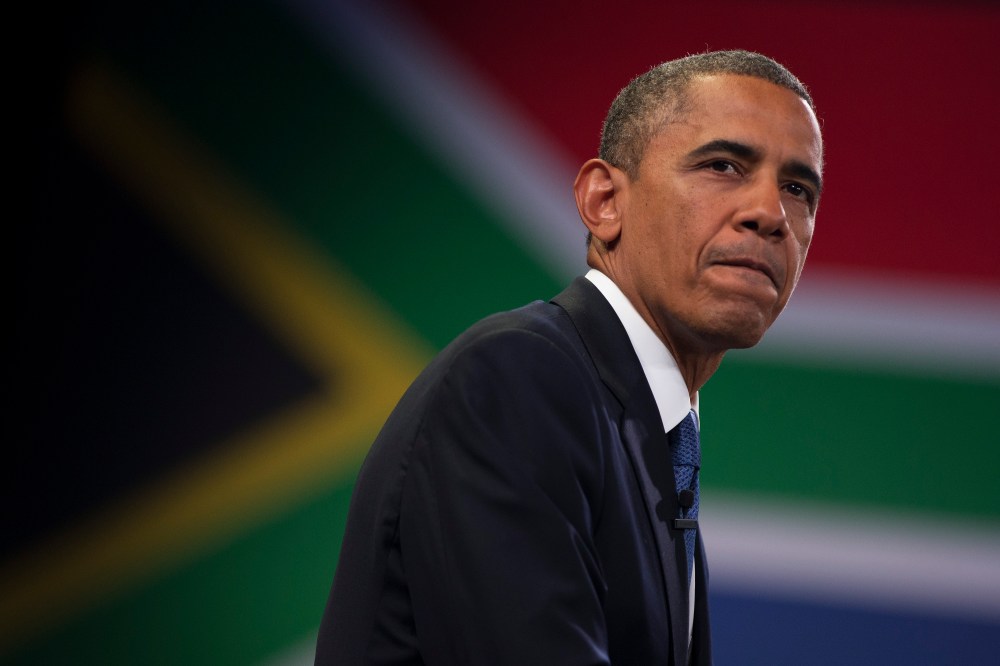JOHANNESBURG – President Obama met the family of South Africa’s ailing anti-apartheid hero Nelson Mandela on Saturday, offering words of comfort and praising the critically ill retired statesman as one of history’s greatest figures.
The faltering health of Mandela, 94, a figure admired globally as a symbol of struggle against injustice and racism, is dominating Obama’s two-day visit to South Africa.
On the second leg of a three-nation Africa tour, Obama met Mandela’s relatives to deliver a message of support instead of directly visiting the frail former president at the hospital where he has spent the last three weeks.
The half-hour meeting took place at the Nelson Mandela Centre of Memory in Johannesburg.
Obama said afterwards in a statement he had also spoken by telephone with Mandela’s wife Graca Machel, who remained by her husband’s side in the hospital in Pretoria.
“I expressed my hope that Madiba draws peace and comfort from the time that he is spending with loved ones, and also expressed my heartfelt support for the entire family as they work through this difficult time,” he said, using the clan name Madiba by which Mandela is affectionately known.
Machel said she had conveyed this message to her husband and thanked the Obamas for their “touch of personal warmth”.
Obama earlier held talks with South African President Jacob Zuma and the two held a joint news conference in which Zuma said Mandela remained in a “critical but stable condition”.
“We hope that very soon he will be out of hospital,” Zuma added, without giving further details.
Obama’s visit to South Africa had stirred intense speculation that the first African-American president of the United States would look in on the first black president of South Africa in his hospital room.
But Mandela’s deterioration in the last week to a critical condition forced the White House to decide against such a visit.
Speaking to reporters at Pretoria’s Union Buildings, where Mandela was inaugurated in 1994, Obama said the prayers of millions around the world were with the Nobel Peace laureate.
He likened Mandela to the first U.S. president, George Washington, because both had decided to step down at the peak of their power and popularity.











